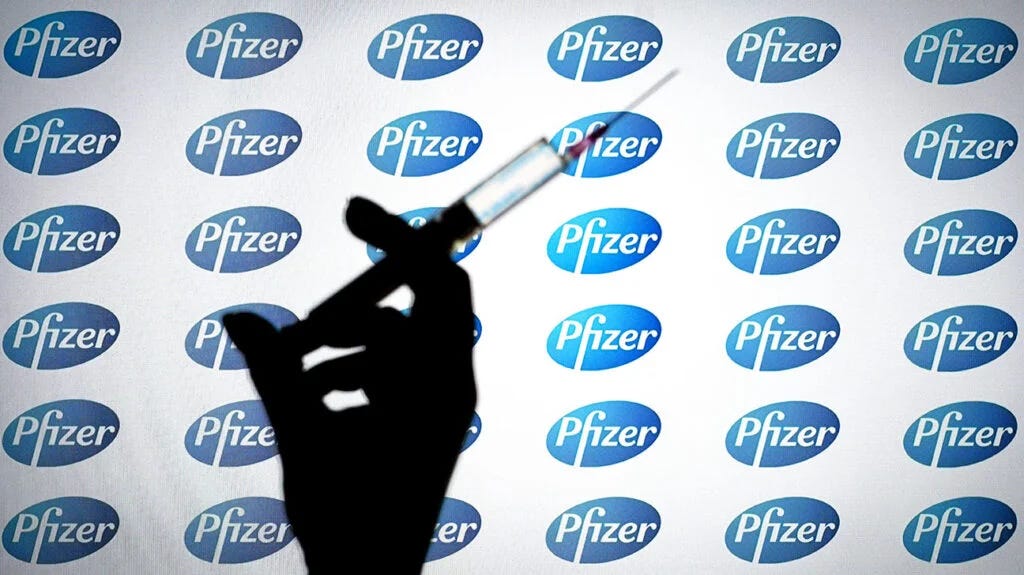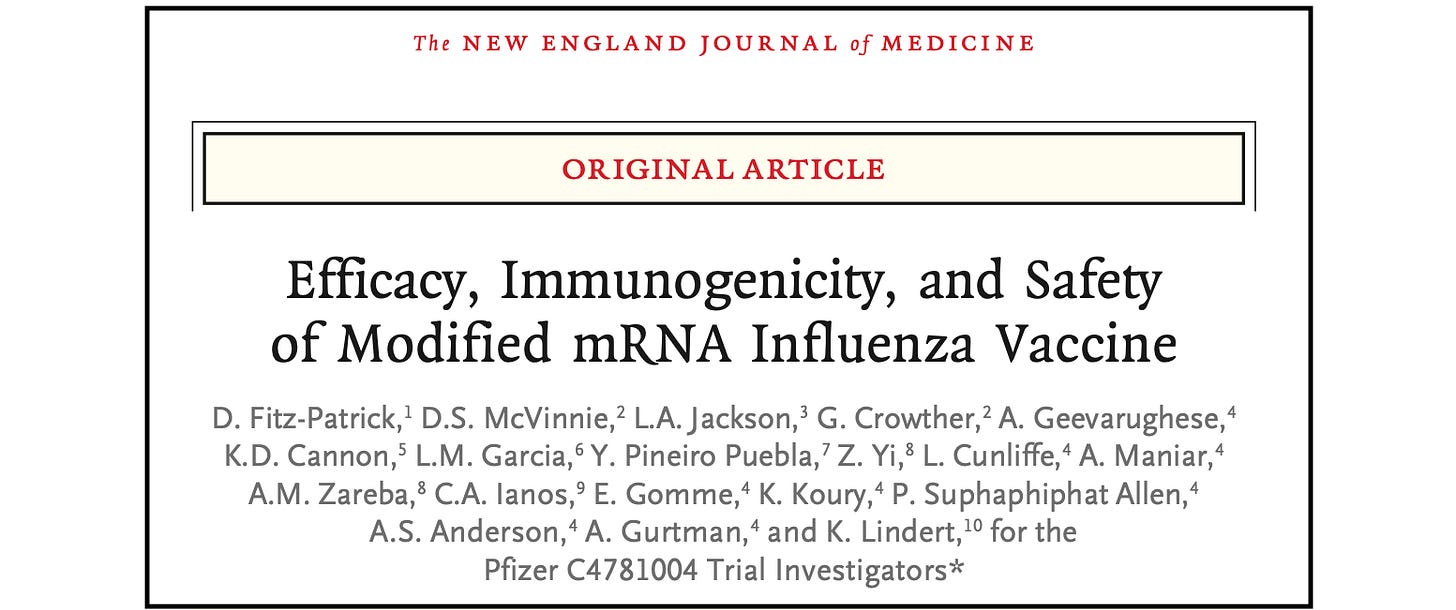Pfizer’s mRNA flu jab flops
ANALYSIS: Pfizer’s mRNA flu shot was supposed to revive confidence in the platform. Instead, its own trial results reinforce the view that mRNA is still nowhere near ready for prime time.
A major new trial of Pfizer’s mRNA flu shot has landed — and despite flattering headlines, it is nowhere near the breakthrough the company hoped for.
The phase 3 study, published in the New England Journal of Medicine, shows only a sliver of protection against mild, flu-like illness. It’s hardly the slam-dunk result Pfizer was banking on.
The timing is notable.
Just three months ago, in August 2025, Health Secretary Robert F. Kennedy Jr announced that the federal government would wind down mRNA vaccine development, cancelling 22 contracts worth almost half a billion dollars.
An internal review had found that mRNA vaccines — particularly those aimed at respiratory viruses — had repeatedly “failed to protect effectively against upper respiratory infections like COVID and flu.”
Critics accused Kennedy of abandoning a technology that could “save lives.” But Pfizer’s new data makes that defence far harder to sustain.
It also raises uncomfortable questions for governments, including Australia’s, that have invested billions into sovereign mRNA manufacturing.
A closer look at Pfizer’s trial
Pfizer’s phase 3 study followed more than 18,000 adults across the United States, South Africa and the Philippines.
Participants were randomised to receive either the mRNA flu shot or a conventional inactivated flu vaccine — not a saline placebo.
Even before looking at efficacy, the exclusions stand out.



